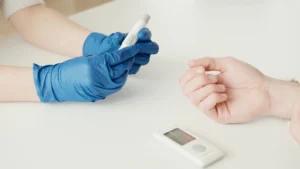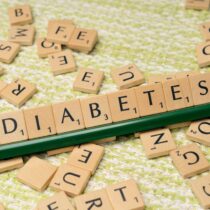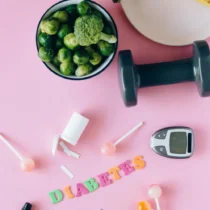Common Symptoms of Diabetes
- Frequent Urination (Polyuria): Excess glucose in the blood causes the kidneys to work harder to filter and absorb it. When they can’t keep up, the glucose is excreted into the urine, pulling fluids from the body and leading to frequent urination.
- Excessive Thirst (Polydipsia): Frequent urination can lead to dehydration, causing an intense feeling of thirst.

- Extreme Hunger (Polyphagia): Without enough insulin to move glucose into the cells, the body lacks energy, triggering intense hunger.
- Unexplained Weight Loss: Despite eating more, people with diabetes (especially Type 1) may lose weight because the body starts breaking down muscle and fat for energy when it can’t use glucose properly.
- Fatigue: High blood sugar levels can make you feel tired and lethargic because the body’s cells aren’t getting the energy they need.
- Blurred Vision: High blood sugar can cause fluid to be pulled from the lenses of the eyes, affecting the ability to focus and leading to blurry vision.
- Slow-Healing Wounds: Diabetes can affect blood circulation and the immune system, making cuts, bruises, or infections take longer to heal.
- Tingling or Numbness in Hands or Feet: High blood sugar can damage nerves, leading to a condition called diabetic neuropathy. This often causes tingling, numbness, or pain in the extremities.
- Frequent Infections: Diabetes can weaken the immune system, making individuals more prone to infections, such as urinary tract infections (UTIs), yeast infections, or skin infections.
- Dry Skin and Itching: Poor circulation and dehydration caused by high blood sugar can lead to dry, itchy skin.
- Darkened Skin Patches: A condition called acanthosis nigricans can cause dark, velvety patches of skin, often in the folds of the neck, armpits, or groin. This is more common in people with Type 2 diabetes.
Symptoms Specific to Type 1 Diabetes
- Symptoms often develop quickly (over weeks or even days).
- Sudden weight loss.
- Nausea or vomiting (due to a condition called diabetic ketoacidosis, which is a medical emergency).
Symptoms Specific to Type 2 Diabetes
- Symptoms may develop slowly and go unnoticed for years.
- Recurring infections or slow-healing sores.
- Increased hunger and fatigue.
Symptoms of Gestational Diabetes
Gestational diabetes often has no noticeable symptoms, which is why screening during pregnancy is crucial. However, some women may experience:
- Increased thirst and urination.
- Fatigue.
- Blurred vision.
When to go to a healthcare professional
If you or someone you know is experiencing these symptoms, especially frequent urination, excessive thirst, unexplained weight loss, or fatigue, it’s important to consult a doctor or healthcare professional.
Early diagnosis and treatment can prevent complications and improve quality of life.
Conclusion
Recognizing the symptoms of diabetes is the first step toward managing the condition effectively. If left untreated, diabetes can lead to serious complications, including heart disease, kidney failure, nerve damage, and vision problems. By being aware of the signs and seeking medical advice promptly, individuals can take control of their health and live well with diabetes.



